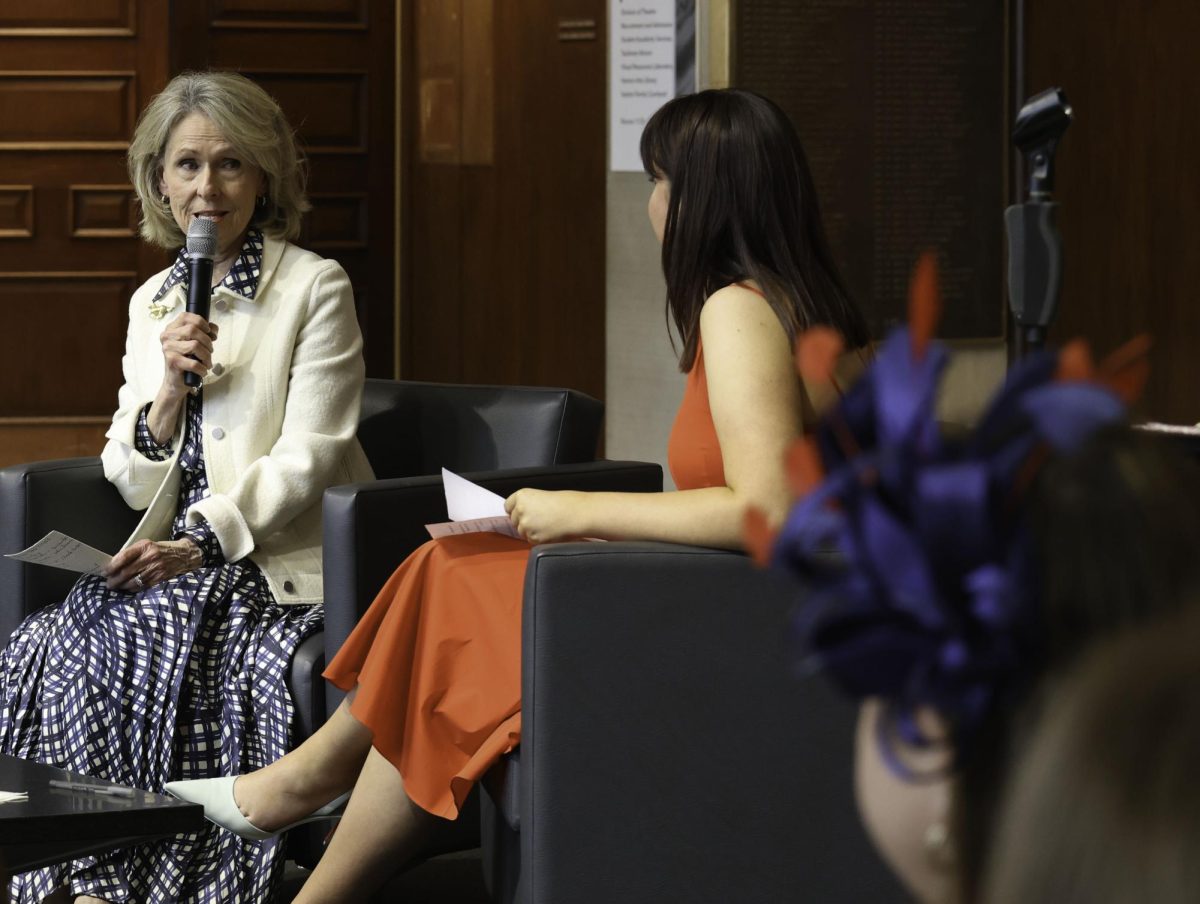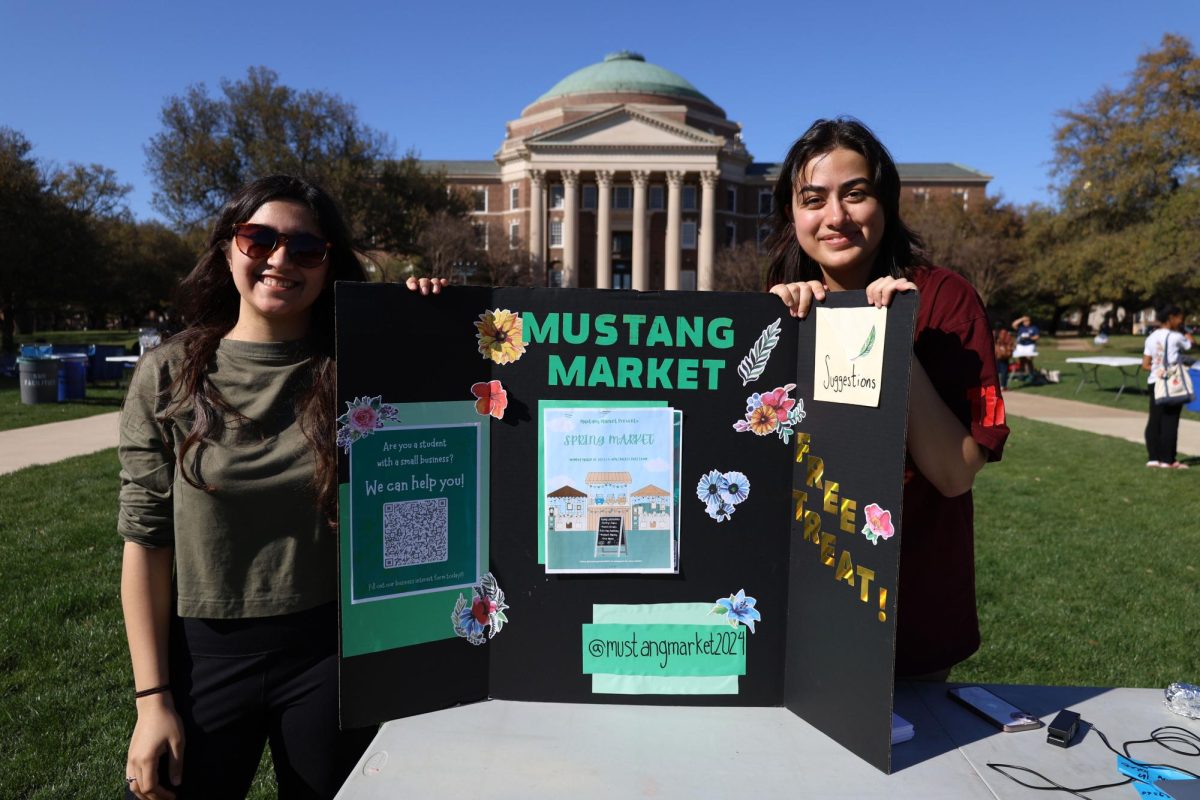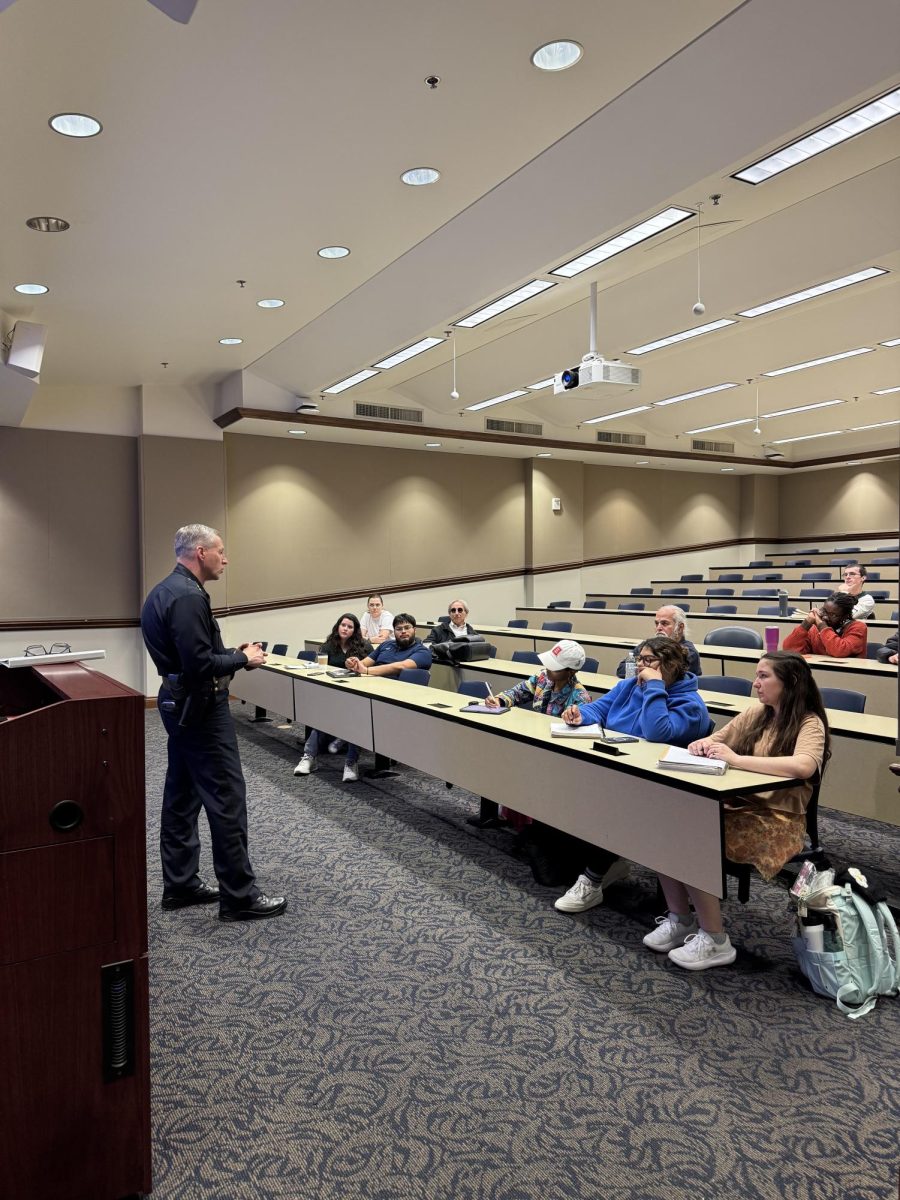
Little kids and dogs. Two things you don’t see very often on most college campuses. But SMU is changing that trend. SMU’s Faculty-in-Residence (FiR) program is housing one faculty member in each of its new 11 Residential Commons.
Some professors moved in solo this summer, others brought their furry friends with them. Some brought the entire family.
This year, seven children are living in four of the commons buildings around campus, spending part of their childhood with hundreds of college students as next-door neighbors.
“Usually when I’m walking our dog Goldie lots of people come up and pet him, and sometimes I talk with them a little bit,” second grader Sophia Teyolia said.
Moving onto a college campus as a professor and adapting to a new lifestyle is a life-changing decision, but add children into the equation and that decision becomes more difficult.
Transitioning a family to campus living comes with challenges. For most families, this was the first time living an apartment, leaving behind the everyday conveniences of a house. For others, their children were going to new schools as a result of the move.
Adapting to all the changes was difficult for some families, but FiR mother Heidi Son believes the pros outweigh the cons in the end.
“We miss the little comforts of having a house and a garage, but for the most part we’ve learned to adapt and we really like living here,” Son said.

One of the FiRs who decided to make the move is Will Powers, an artist-in-residence in the Division of Theater. Powers, along with his wife Marla, their twin children, 7-year-olds Sophia and her brother Omar and their dog Goldie are the first family living in Crow Commons.
Sophia and Omar are well-spoken second graders who experienced a big change in their day-to-day life during their transition to campus living.
With Goldie on her lap, Sophia explained what it’s like to be surrounded by big kids everyday.
“We see them at parties and when they moved in and all that stuff,” she said. “Once they babysitted me. “
Another FiR dad to make the move is Dr. David Son, a chemistry professor at SMU. He moved into Boaz Residential Commons with his wife Heidi and their two kids, 8-year-old Kaylee and 10-year-old Geoffrey.
When agreeing to leave their Plano home and move to campus, David and Heidi Son said their two children were a primary factor in their decision. Mrs. Son hopes exposing her children to college life at an early age will leave a lasting positive impression.
The move already has sixth grader Geoffrey thinking.
“Ever since I knew about this thing called college I wanted to go to SMU,” he said. “I want to join the Mustang Band one day.”
Geoffrey plays the trombone.
The Residential Commons apartments range in size and layout, but they are all brand new. Apartments were built specifically for the FiR program in the new residential buildings on the southeast side of campus. The high ceilings and granite kitchen countertops are a nice touch.
As for the faculty apartments that were created in existing buildings like Boaz, McElvaney and Morrison-McGinnis, several dorm rooms were converted to create one big apartment. All faculty apartments have separate private entrances.
The kids aren’t shy about their feelings towards their new home. While jumping on her brother’s bed, Kaylee said she likes her new room more than her room at their old house. Her older brother Geoffrey agreed and referred to his new room as his “man cave,” looking around his room approvingly.
In an effort to get to know the residents, many FiRs host weekly resident get togethers. The Son family invites residents over for “Son”day Snacks and the Powers family offers a weekly sweet treat on their Smoothie Sundays. Those events help unite the family with the students living in their building.
Students living in Boaz Commons said having the Son family living so close is a unique experience. They love being able to have a home cooked meal or stop by on Sunday for a quick snack. Sophomore Olivia Buerkle thinks having a family living in her residence hall is a great way to help with the transition to college life and she views the Sons as second parents.
“Just last week, Heidi Son made homemade chicken noodle soup for everyone in Boaz who was sick,” Buerkle said.
In order to become a FiR, applicants must have full time faculty status, or the equivalent, and must have approval from the Department Chair and Dean.
The FiR program is a three- to four-year commitment with the option of reapplication at the end of three years for another term.








